Planting new roots
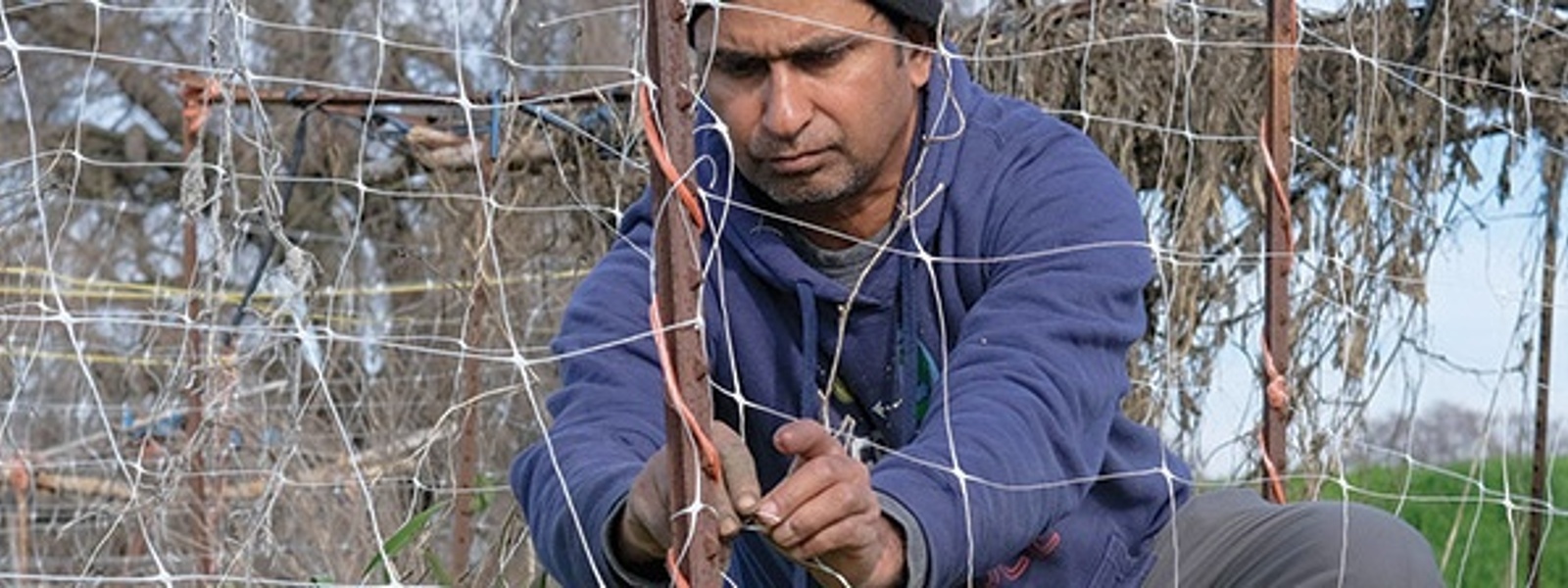
May/June 2023 California Bountiful magazine
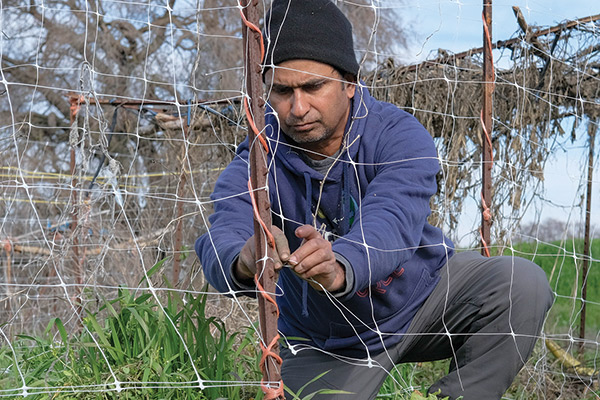
Refugees restore ag traditions
at Sacramento-area farm
Story and photos by Caleb Hampton
Ram Khatiwoda was born and raised on a farm in Bhutan, near the Himalayas, working and playing among rows of corn, squash, beans, potatoes, onions, peppers and fruit trees. “I grew up milking cows, helping my mom with the grinding stone and climbing trees,” he says.
But in the 1980s and 1990s, Bhutan’s monarchy implemented a “One Country, One People” policy, cracking down on ethnic minorities and driving out tens of thousands of people of Nepali origin.
Khatiwoda fled his home and spent 17 years in a refugee camp in eastern Nepal. During vacations, he continued to work on farms “to be able to buy pencils and books and a change of clothes,” he says.
In 2009, Khatiwoda was given the opportunity to resettle in California. He landed in Sacramento, moved into an apartment and took entry-level jobs, first at a thrift store and later at an eyeglass repair shop.
It didn’t take him long to adapt. Soon, he was eating at popular fast-food chains and loving it. “I found the food tastier and crunchier than what I cooked at home,” he says.
But the cramped apartment, stifling work environment and processed foods took a toll. “I found I was gaining weight because I sat while working and ate those foods,” Khatiwoda says.
He wasn’t alone. While serving as a volunteer medical interpreter, Khatiwoda observed a range of ailments in Sacramento’s Nepali-speaking refugee community, which doctors often attributed to poor nutrition and a sedentary lifestyle. “I saw a lot of suffering,” he says
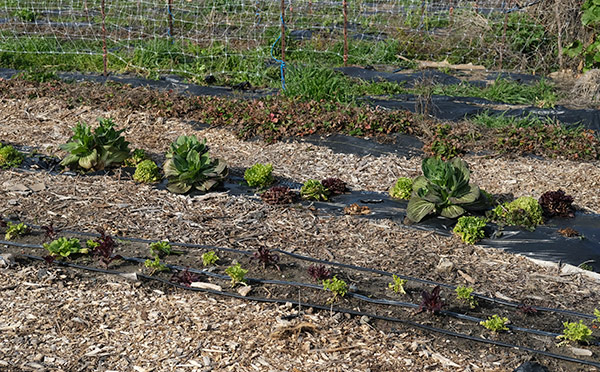
A dirt field
In 2015, Khatiwoda organized a meeting with a dozen or so families. “We agreed we needed to start farming our own food in order to educate our children and get our elders outside,” he says.
The group had a wealth of agricultural experience but lacked land and resources.
They went to the International Rescue Committee, a nonprofit that helps resettle many of the refugees that come to the U.S., and asked for help. Several years earlier, the organization had launched a program called New Roots, establishing community gardens and urban farms in a handful of cities to give refugees opportunities to reconnect with their farming traditions.
In 2016, about a year after approaching the organization, Khatiwoda stood in a 5-acre dirt field, watching jackrabbits and tumbleweeds go by. “It was neglected land and we were neglected people,” he says. “It was a perfect marriage.”
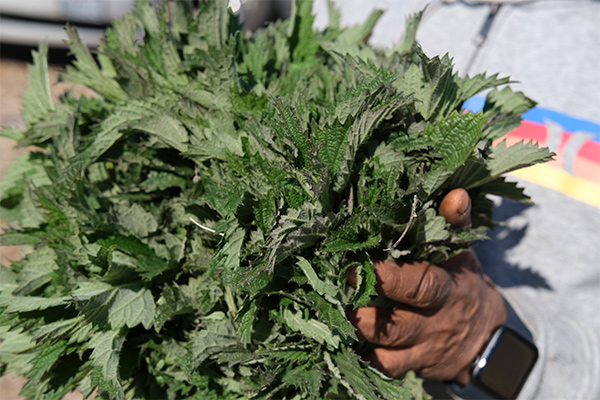
Stinging nettle, sugar cane and more
Today, the New Roots farm in West Sacramento is a thriving patchwork of 250-square-foot plots, each farmed by a different family. This year, there are farmers from Afghanistan, Bhutan, China, Iraq and Laos. Many of them use the farm to grow produce they can’t easily find in grocery stores and need for home recipes. Those crops include gandana—a kind of chive used in Afghan cuisine—sugar cane, moringa , mustard greens and stinging nettle. The farm also produces local staples such as spinach, kale, chard, garlic and onions.
“They grow what they like,” Khatiwoda says. “They know they are eating the best food, which is fresh and organic and comes out of their own hard work.”
The farmers and their families consume about a third of the food grown on the farm, while the rest is sold at farm stands and at a few ethnic grocery stores in Sacramento, such as the Iraqi-owned Babylon City Market. The farm also sells food to the Spork Food Hub in Davis, which distributes it to local schools.
According to a survey, the farmers—who pay a small yearly fee—reduced their vegetable-related grocery bills by 60%. And they keep the income earned from selling their produce, some making as much as $10,000 in a year.
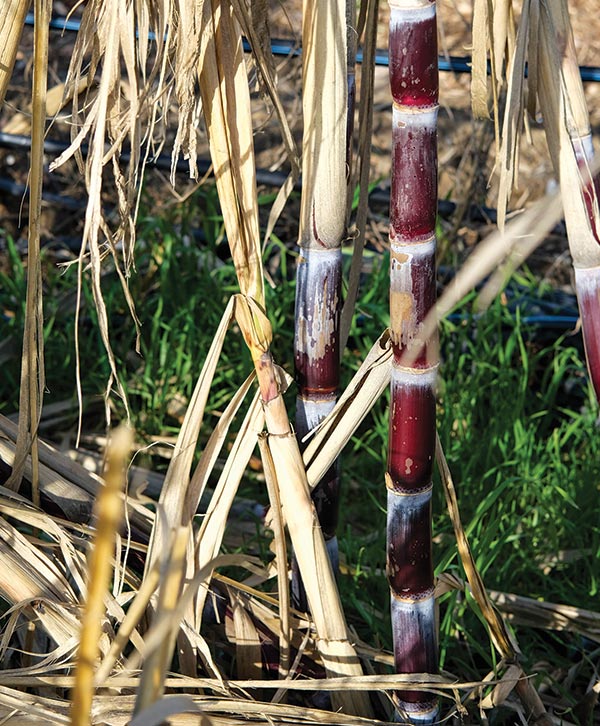
Local practices
In addition to providing a financial boost, New Roots gives newcomers the time and space to learn local farming practices, including how to wash and package their produce for sale. “Their experience from back in their countries is different from farming here,” Khatiwoda says. “There are differences in the climate conditions, soil quality, rain and everything.”
After volunteering at the farm, Khatiwoda was hired as New Roots’ market specialist. He now serves as the farm coordinator, leading training programs and providing technical assistance to the farmers. In 2020, he earned a Master Gardener certificate through the University of California Cooperative Extension.
At the farm, Khatiwoda has implemented “a lot of organic and environmentally friendly practices,” he says, such as using wood chips to prevent erosion and capture carbon. “This benefits the land and helps with crop production and temperature regulation.”
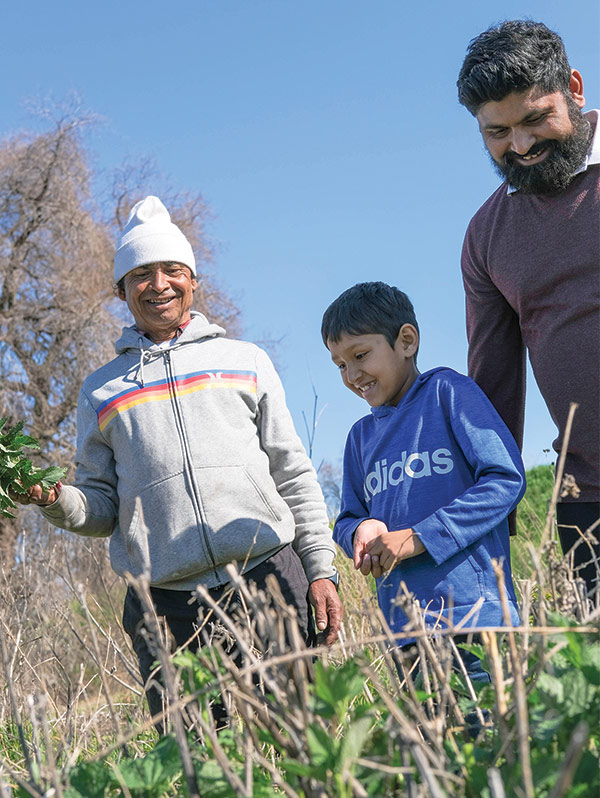
Chasing a dream
When Dhan Prasai and his father, Lal Prasai, resettled in Sacramento in 2010, Dhan worked for an industrial laundry company, washing clothes for local jails and hospitals. After the New Roots farm opened, the father and son—who also fled Bhutan—started growing vegetables.
Drawing on their training at New Roots, in 2021, the Prasais rented a 10-acre parcel in nearby Elk Grove and planted green beans, mustard greens, cucumbers, tomatoes, peppers, okra, black-eyed peas, melons and other crops, moving their family out of a small apartment and into a house on the farm.
“As long as we can remember, going back to our grandparents, we have been farmers,” Dhan Prasai says. “It is our passion.”
The Prasais, whose operation is run entirely by family members, have found it difficult to strike out on their own. But with crop planning they learned at New Roots, and a strong market for cilantro and parsley, they’ve managed to pay their bills and keep their dream alive.
“My longing for the future is to have our own land to farm,” Dhan Prasai says, “to be independent and grow food for the community.”
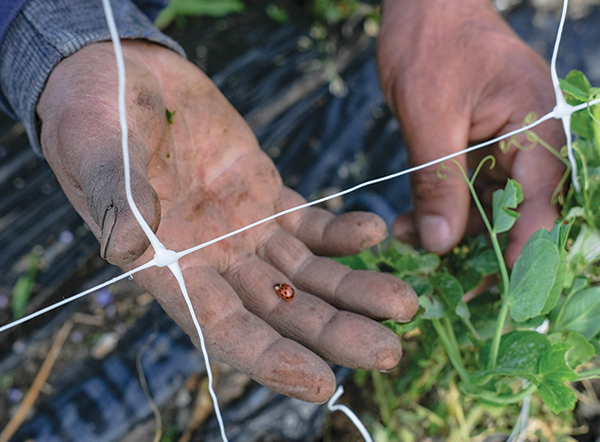
Connecting with nature
Khatiwoda says he hopes farming will one day provide a living for more of his farmers, but he knows the program also pays off in other ways.
“It provides therapy and exercise,” he says. “One day, I was passing by the northern edge of the farm and I heard a long and loud singing from one of our farmers. When the farmers come here, they release their tensions, meet with their neighbors and refresh their memories.”
Earlier this spring, Khatiwoda sunk a shovel into a patch of earth on the farm, turning the soil to prepare it for a new crop. “Sometimes I just toss the soil without gloves to feel the connection with nature,” he says. “When I see the flowers flowering and the stinging nettle, I see my 10 cows grazing around the stinging nettle back in my country. It recaptures my past life and makes me happy.”
Program serves four cities in the Golden State

The International Rescue Committee is one of several nonprofit organizations that work with refugees who resettle in cities across the United States. Its staff collaborates with government agencies, civil society organizations and volunteers to support newly arrived refugees, helping them find housing, apply for jobs, enroll children in school and navigate other aspects of life in America.
In 2008, the committee established its New Roots program to provide opportunities for refugees to grow their own food in urban farms and community gardens. There are now New Roots programs in 13 cities, including four in California. The Sacramento program includes a 5-acre farm and three community gardens, which serve around 80 families. There are also New Roots programs in Oakland, Turlock and San Diego.

